
Film & Television MA (Online)
Accelerate your career in the film and television industries.
Course overview
Channel the spirit of radical creativity into your practice and define your unique voice, ready to succeed in a rapidly developing field.
This online MA course will equip you to take your creative practice and technical craft to the next level of professionalism – sharpening your skills across a broad range of areas including screenwriting, pitching, production management, filming, editing and distribution. You’ll be challenged to innovate, questioning traditions and creative canons.
Whether you’re already working in the industry, have just finished an undergraduate degree or want to enter academia, we’ll help you to bring innovation and originality to your chosen specialism.
Why study this course at Falmouth?
• Be supported by experts in online collaborative filmmaking, tapping into Falmouth’s pioneering legacy – one of the longest film education traditions of any UK university – from your own location
• Develop courageous practice through interrogation of the industry and its cultural contexts, helping to determine your original contribution
• Upgrade your research abilities to embark on an original path while reaching out to diverse audiences and collaborators
• Boost your knowledge of the industry to find funding opportunities, outlets and audiences for
transformational projects
Start dates: January / May / September
(Three intakes per year)

Interested in studying this Online MA? Join our virtual masterclass on 22 April.
Find out moreCourse details
You will be supported by expert staff to enhance your filmmaking craft and research skills across pre-production, production and post-production. While developing projects that mirror industry workflows, you will deepen your understanding of how global cultural, political and social contexts frame and influence audience engagement. You will also learn to work with others in a productive and collaborative environment.
Modules
The modules have been specifically designed to be studied in a non-linear order, with the order in which you’ll study the modules depending on when you begin the course.
MA
You will need to complete four 30-credit modules and one 60-credit Major Project (180 credits in total). All modules on the course are compulsory and must be passed in order to complete the award.
From module information to course aims and assessment criteria, discover the full course details for the MA.
PGDip
You will need to complete four 30-credit modules (120 credits in total), and will not complete a Major Project.
From module information to course aims and assessment criteria, discover the full course details for the PGDip.
Module details
With this module, you start building your film and television industry competence to shape practical projects from an initial idea to a final screen artefact. Your tutor offers step-by-step professional instruction to nurture your creativity.
You'll get acquainted with production workflows across various creative, professional and technical roles. On completion, you'll have grasped a command of essential professional skills and an understanding of the fundamental standard processes of the contemporary film and television industries.
To complete this module, you will devise and develop a creative project pitch (industry standard treatment), a short (scene or sample) screenplay and a short pre-production portfolio with optional audio-visual samples (clips). Your submission will be accompanied by a written critical reflection on the process and potential funding and distribution strategies.
You'll be documenting your progress in an online journal, sharing ideas and your weekly tasks with your tutors and peers to help you organise your work. Weekly webinars will give you a chance to learn by example and to receive constructive feedback on your progress.
(30 credits)
Working on a case study, you develop a critical understanding of practical skills that underpin contemporary film and television industries' operations and project/business management challenges.
This industry research module uses student-centred practice, offering you an opportunity to spend time on in-depth research of a chosen sector of film and television industry, one that aligns with your interests, career plans and ambitions. Focussing on a case study of your choice you'll manage your project under supervision of your tutors and via sharing with your peers.
Starting with factual queries and gathering of information, you'll then progress to critical research to evaluate and analyse your industry data. You'll document your research journey and your findings in an online journal which will inform weekly webinar discussions.
As you progress through your course and later when you enter the job market, the in-depth knowledge of sources and informed critical arguments you acquire here, will help you gain confidence in your professional choices as well as support you making informed decisions, whether you choose pre-production, on-set work, post-production or exhibition/distribution and reception of film and television.
(30 credits)
In this module, you'll pre-produce a short cinematic or televisual form or a screenplay. Practice informed by a critical study of selected examples will help determine your potential contribution to film and television culture.
Designed for you to excel in film and television practice in an informed, professional way, yet crafted to help you follow your interests, this module offers two options: pre-production or screenwriting.
You'll explore critical frameworks and screen practices as they pertain to fields of cinema, television, online viewing platforms, art galleries, transmedia, social media and citizen journalism. Active participation in practical project development will take you through the typical stages of film and television production, making you aware of real-world industry workflow. An overview of the contemporary industry and its commissioning, distribution and exhibition channels will help you situate your original ideas and skills within the current film and television market.
(30 credits)
This module helps you expand your knowledge of how global cultural, political and social contexts frame and influence both production/distribution strategies and contemporary audiences' engagement with various available screen texts.
You'll explore inter-disciplinary contexts interrogated by scholars and critics who now examine film and television as focal points in a wide range of socio-cultural analyses. The shift from modernism to postmodernism followed by the arrival of the internet served as catalysing moments for the emergence of new critical approaches to the contemporary film and television industries. This module will introduce you to the most impactful and recent among such debates.
Every week, you'll sample examples from media studies and cultural studies as disciplines that build on previous academic thought, but exemplify new strategies of understanding creativity in the digital age. Next to analysing traditional film and television texts, you'll discuss transmedia as well as the broadly understood moving image that is available online.
You'll consider relevant contexts of funding, commissioning, production, distribution and exhibition and their impact on today's screen representations and storytelling tactics.
Not only does this module encourage you to use these recent research strategies and methodologies in your investigations of selected film and television examples, but also to apply them to your developing film or television practice.
(30 credits)
This module culminates your academic and creative learning, providing a bridge for your professional aspirations. Working on your portfolio with your supervisor, you advance your chosen film and television expertise in one of the following areas: production, screenwriting, or academic research.
You'll have the opportunity to excel in practising the following skills that can be used in professional settings in film, television and the creative industries, as well as in academia and beyond.
Using student-centred practice, your tutors will start by discussing your project proposal with you to advise on the format and the option that would best suit your interests, ambitions and career plans.
You'll work on the same project across two study blocks, the first of which will be dedicated to preparation (research, writing, conception), and the second to execution (compiling and presenting your portfolio).
(60 credits)
As part of our process of continuous improvement, we routinely review course content to ensure that all our students benefit from a high-quality and rewarding academic experience. As such, there may be some changes made to your course which are not immediately reflected in the content displayed on our website. Any students affected will be informed of any changes made directly.

Got questions? Chat to Kiefer, your Course Advisor
Get in touchOur students and graduates

"Through the course I built a network of emerging and established filmmakers. Studying online provided such fertile ground for finding collaborators."
Ola Røyseland, graduate

"The lecturers were fantastic and supportive, all with different specialisms, and I was continually learning something new."
Rich Scott, graduate
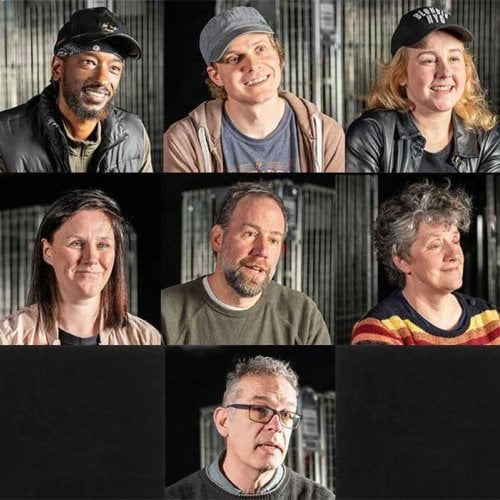
Meet our online filmmakers
Hear from our students and staff about their backgrounds and how they’re finding new ways to collaborate across borders.
Watch the videosStories from our community
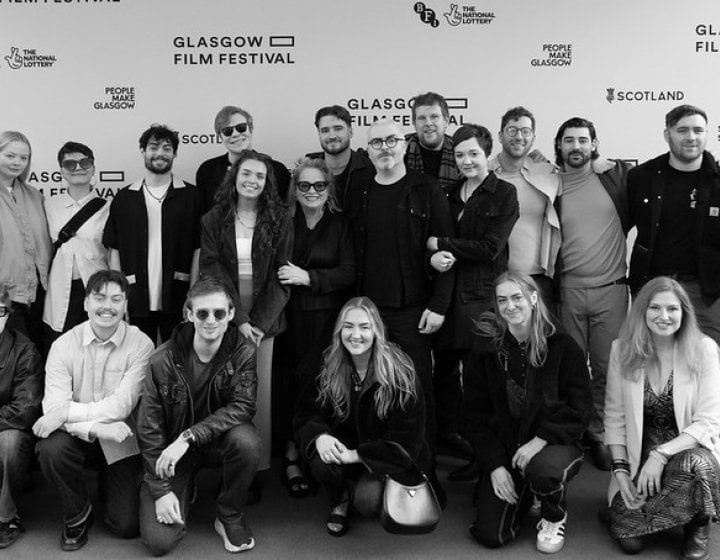
‘The Birdwatcher’ premieres at UK’s leading horror film festival
21 March 2025
Students from across Falmouth’s School of Film & Television, Fashion & Textiles Institute, and Gam...
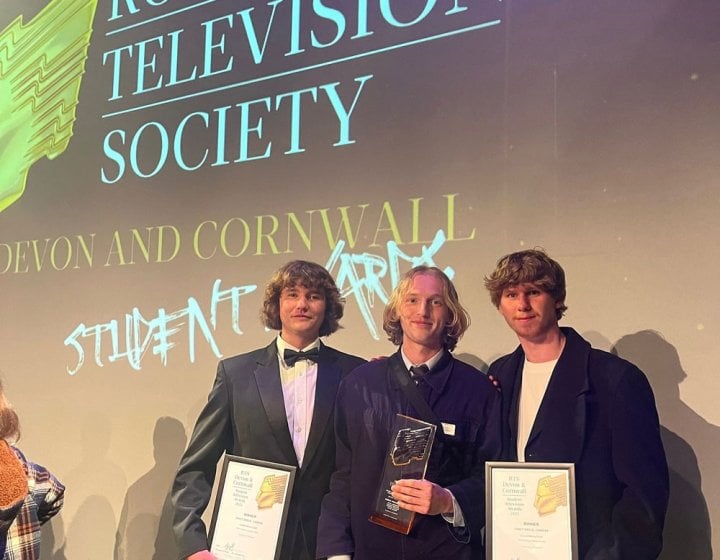
Graduate's seaweed plastic documentary wins more recognition at Royal Television Society Awards
21 March 2025
Television & Film Production BA(Hons) graduate Olaf Lawrence’s documentary about seaweed plastics ...
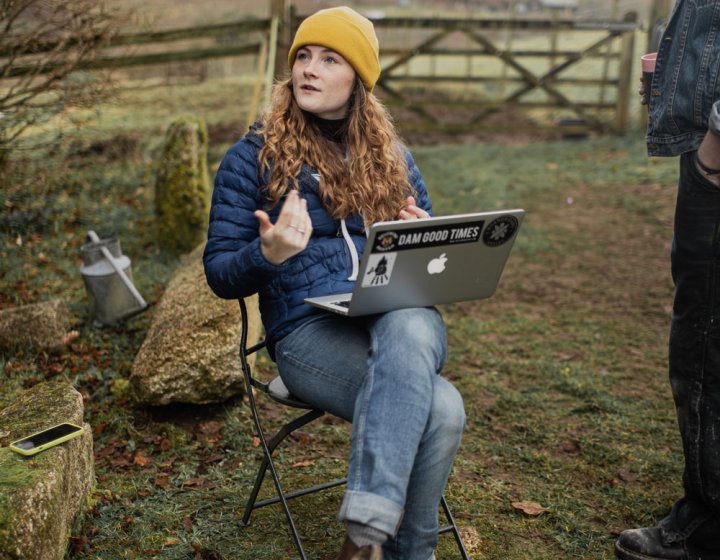
Film graduate Rachel Clear Burton on working as a production coordinator
03 March 2025
Rachel Clear Burton has enjoyed a series of exciting achievements, including the success of her fina...
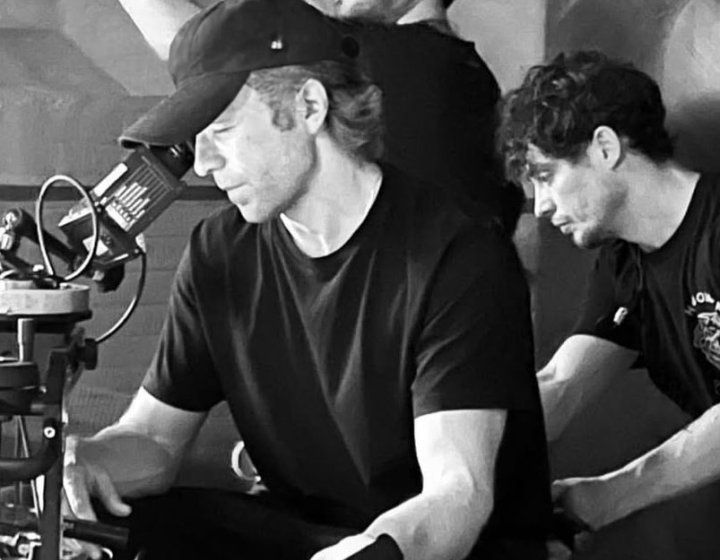
Graduate cinematographer Bryan Gavigan on his BAFTA Cymru win
13 January 2025
Film graduate Bryan Gavigan scooped a BAFTA Cymru award for his work on the crime drama Passenger. B...

Film graduate brings Grenfell stories to life
20 December 2024
Film BA(Hons) graduate Lydia Knights has produced a compelling documentary film for the community fo...
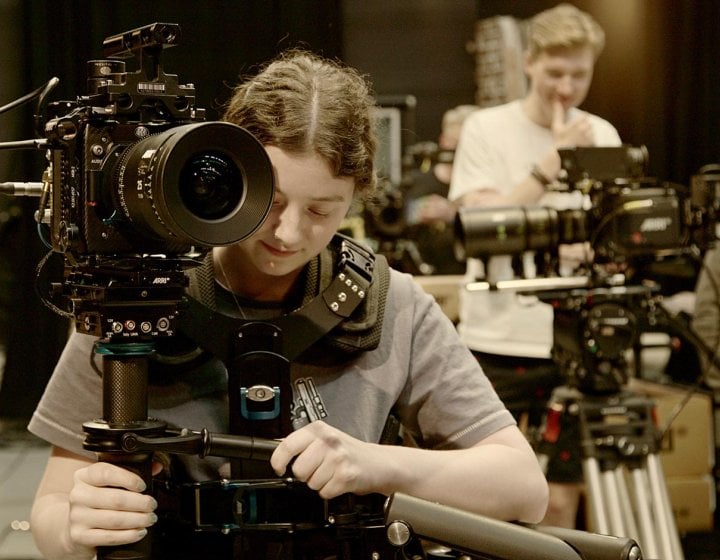
From script to screen: How to develop your film idea
25 November 2024
Get an insight into how the film production process works - from developing your initial idea to cra...

Work by Nathan Bedford
A guide to Worldbuilding
31 October 2024
Worldbuilding shapes the sights, sounds, and experiences that draw audiences into a new universe. Bu...

DEATH x DESIGN x CULTURE: Falmouth hosts conference exploring design’s role in death
30 October 2024
2024 welcomed the inaugural DEATHxDESIGNxCULTURE conference to Falmouth.
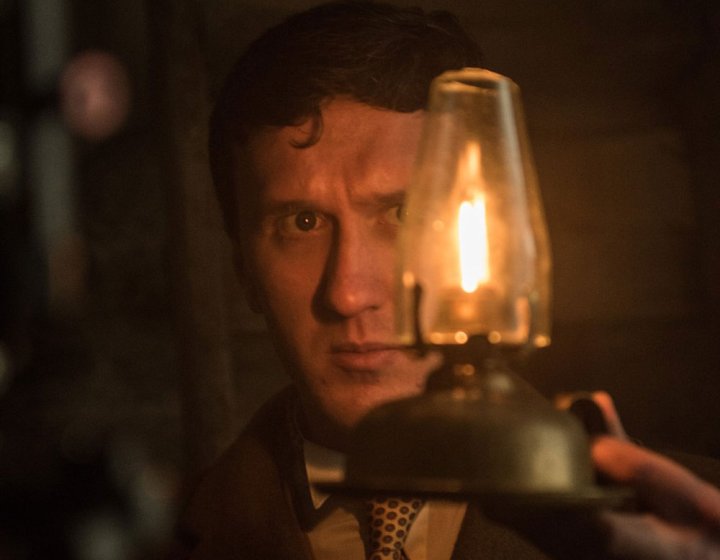
Dr Kingsley Marshall’s top horror films of the year, and of all time
29 October 2024
The Head of the School of Film & Television talks through his top horror picks for your viewing plea...
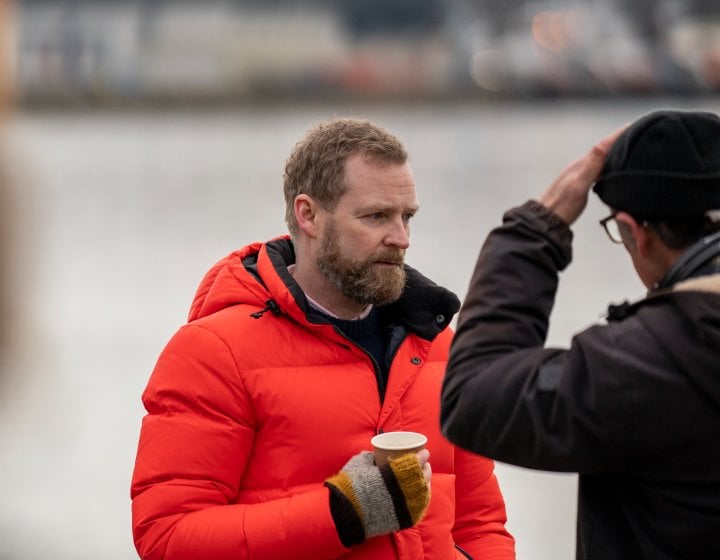
Dr Kingsley Marshall on what makes a good horror movie
22 October 2024
I’ve always been drawn to horror; the 1970s ‘Giallo’ movies from the Italian director Dario Ar...

Why Mums Don't Jump: the student animated film breaking health taboos
18 October 2024
The animated short film Why Mums Don’t Jump (2023) made by students at Falmouth University h...

Where Memory Flows: BA Film’s Dr Struan Gray Conducts Research on Rivers as Spaces of Memory in Chile
03 October 2024
Dr Struan Gray, Senior Lecturer on BA Film, has recently returned from a research trip to Chile and ...

The Severed Sun set for world premiere at Fantastic Fest
19 September 2024
The Severed Sun, the debut feature film from director and Falmouth University lecturer, Dean Puckett...

A new life awaits: my personal journey to AI | Dr Kingsley Marshall
18 September 2024
For so much of my life artificial intelligence has only ever been a feature of science fiction: ofte...

More Rookies recognition for animation alumni
30 August 2024
Graduate Gihan Fernando has received some of the highest accolades at the Rookie Awards 2024.
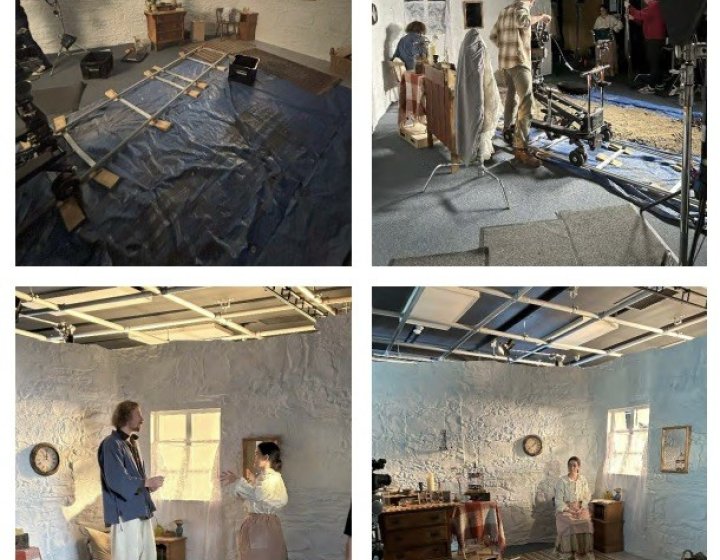
Film & TV master’s students on their placement at Verve Media
09 August 2024
Four students on the Film & Television MA course completed a week’s placement at Verve Media earli...

Falmouth grads meet on set of Netflix’s The Devil’s Star
22 July 2024
Two Film BA graduates - who didn’t know each other during their studies - have started working tog...
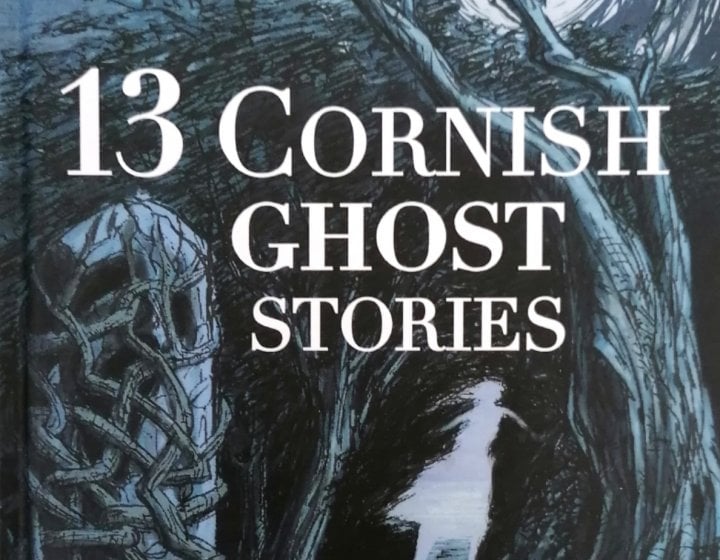
'13 Cornish Ghost Stories': new anthology published by three senior lecturers
05 July 2024
'13 Cornish Ghost Stories', a chilling anthology of new Cornish ghost stories hit the shelves on 20 ...
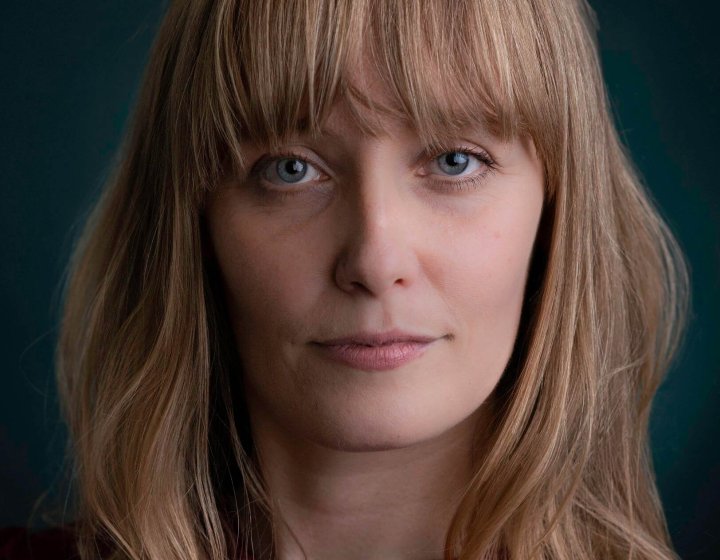
Image credit: Duncan Guymer
Susan Lay’s journey from MA to filmmaking in Cornwall
04 July 2024
Susan Lay studied MA Film & Television, graduating in 2019, and has since gone on to write, produce,...
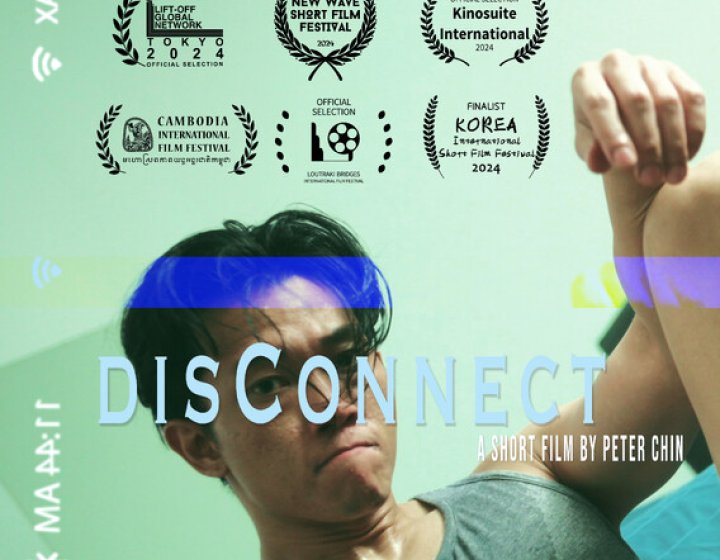
The award-winning short films by Falmouth’s online filmmakers
19 June 2024
Falmouth’s online Film & Television MA student filmmakers are scooping awards for their films left...
Learning and support
You'll learn through a blend of lectures, webinars, guest talks, tasks and discussion forums, which you'll access via our dedicated virtual learning environment. This is also where you'll find all key documentation, get course announcements and access extensive learning resources.
How will I be supported?
You'll be supported academically by Online Tutors, who will also deliver weekly webinars and facilitate the online forums. As you progress through the course, formal teaching will gradually shift towards more independent exploration and learning.
If you need assistance with anything that isn't directly related to course material, a dedicated Student Advisor team will be on hand to help. You'll also have access to Falmouth University's excellent Employability Service.
You'll refine dynamic filmmaking practices, spending 25 hours a week working on your craft. We incorporate optional face-to-face events for all our online students. There will be up to two per year, and they'll typically run over weekends, to fit around your other commitments.
What are my study hours?
Based on the total learning time for the Postgraduate online courses, an average study week can be up to 25 hours. As our online courses are intended to be flexible, the time required to study will vary based on the level of study, the module week, and individual learning pace.
Assessment methods
Assessment provides the course team with a means of offering tailored guidance alongside advice on how to progress knowledge and skills in key areas that relate to the course Learning Outcomes. The course team will identify your strengths and weaknesses as an individual and discuss them with you throughout your time on the course.
You will be assessed via coursework at the end of each module in the form of visual, verbal and written assignments. You will also receive regular feedback via webinars, Q&As and workshops with your peers.
- Dedicated easy-to-use virtual learning environment (VLE)
- Accessible online audio / visual content
- A Student Advisor to support you throughout your studies and access to our Student Support Services
- Access to our Employability Service
- 24/7 access to Falmouth's extensive online library of contextual books, journals and resources
- Access to online software tutorials at LinkedIn Learning
- Students' Union community
- Optional in-person events
- Invitation to attend alumni events
Although online students don't have access to on-campus facilities as part of the course, you can hire equipment and access facilities by paying a charge. Find out more about availability and prices here.
Chat to us
Fill in our form and a Course Advisor will get in touch with you. They'll be able to answers questions about how you'll study, what to expect from the online course, and the next step to take on your application journey.
Chat to us
Meet the team
You'll learn from a team of award-winning film and television practitioners, expert academics and technicians with specialist skills in lighting, cinematography, lighting, post-production, sound editing and more.
Some members of staff only teach on specific modules, and your course might not feature every staff member who teaches on the course.

Dr Jem Mackay
Course Leader, Film & Television MA (Online)
Dr Jem Mackay is a filmmaker/artist who has been exploring collaborative systems within creative pro...

Dr Anna Misiak
Associate Professor in Film & Visual Culture
Anna Misiak is the MA Prosthetic Effects Course Leader and MA Film & Television Course Lead...
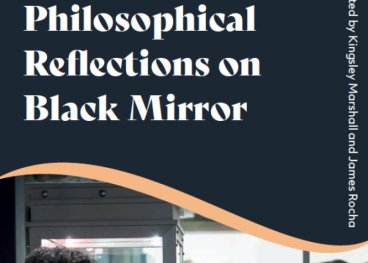
Dr Kingsley Marshall
Head of Film & Television
Dr Kingsley Marshall is Head of the CILECT and ScreenSkills accredited School of Film and Television...

Jane Pugh
Associate Lecturer, School of Film and Television
I live with friends and my dog by the sea. I write, teach and facilitate because my job is to create...

Meet your course leader, Dr Jem Mackay
Hear from course leader, Dr Jem Mackay, a filmmaker and artist who has been exploring collaborative systems in creative projects for 25 years.
Read moreCareers
As a graduate of this Film & Television MA, you will become an adaptive thinker, a creator and a supportive contributing team player. You may decide to work solo, or in collaboration with other creatives, shaping the future of the film and television industries.
You could go into roles such as:
- Production designer
- Director
- Screenwriter
- Researcher
- Project developer
- Production assistant
Research skills embedded throughout the modules and with the Major Project could also allow you to successfully progress into postgraduate research programmes, PhD and MPhil studies.
Recent graduates from the School of Film & Television have had their work featured at world-class festivals, secured development from the BFI and BAFTA, and been published in titles like Film International, MAI: Feminism & Visual Culture, Total Film, The Telegraph, The Guardian and Little White Lies.
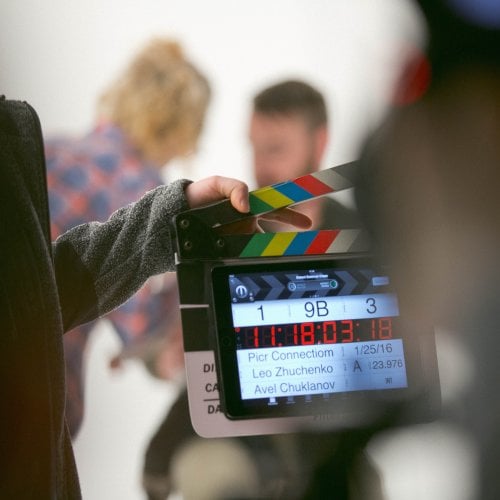
How can an online master's in film and television help you to excel in the industry?
In this article we explore three ways that online postgraduate study can help you to excel in the dynamic world of contemporary film and television.
Read moreHow to apply
Speak to us about the course
If you'd like to talk to an Advisor about this course or your application, get in touch with us via the form below.
Apply now
Ready to apply for postgraduate study? We have three start dates a year: January / May / September. Select the start date you'd like to apply for in the drop-downs below and then click the relevant apply button to begin.
You can apply to begin your studies in May 2025 by selecting the relevant course route below:
You can apply to begin your studies in September 2025 by selecting the relevant course route below:
You can apply to begin your studies in January 2026 by selecting the relevant course route below:

How to apply for our Online Degrees
Find out moreAn honours degree or Level 6 equivalent qualification is desirable. However, candidates without a degree or formal qualification are still encouraged to apply. If you'd like to discuss our entry requirements, speak to an advisor.
We’ll ask you to provide a piece of work that relates to the moving image, which you have been involved in making. This could include an example of a screenplay, a film, a showreel, or a piece of writing that demonstrates your commitment to the theory of the moving image. It could include previous project work and/or your current work in progress and could take the form of a link to your blog or website. Please also provide a statement of approximately 250 words that gives information on what your contribution was to this work.
If English is not your first language you will need to meet the same standard which is equivalent to the IELTS Academic 6.5 overall score, with at least 5.5 in Reading, Writing, and Listening, and a minimum of 6.0 in speaking.
We also accept a range of other recognised English language qualifications. You can visit our English Language Requirements page for more information.
For more information about equivalent international qualifications or English language requirements please contact our friendly Course Advisors.
What we're looking for
We welcome both experienced professionals looking to refine their existing film and television practice, and ambitious newcomers with no previous industry experience, but with the ambition to challenge conventions and advocate creative shifts in the global film and television landscape.
This course has three intakes per year: January, May and September.
| Academic start date* | Application deadline |
|---|---|
| 26 May 2025 | 6 May 2025 |
| 22 September 2025 | 1 September 2025 |
| 19 January 2026 | 9 January 2026 |
Please note:
*Virtual Welcome Week begins the week before the academic start date. During this time, our Student Advisor team will host Welcome Webinars and be in touch with practical information on how to study online.
An Early Bird discount is available for early applications. Currently the scheme offers up to £600 off MA tuition fees: £300 if you apply by the Early Bird discount submission deadline, and a further £300 off your tuition fees if you receive an offer and within two weeks you accept the place and pay the acceptance fee. Both these payments would be applied to your final fee instalment. Please note the discount amount is subject to change for future intakes.
| Early Bird discount submission deadline | Academic start date |
|---|---|
| 7 April 2025 | 26 May 2025 |
| 4 August 2025 | 22 September 2025 |
| 24 November 2025 | 19 January 2026 |
To discuss all our discount opportunities, contact an advisor.
Fees, costs & funding
Tuition fees
£12,150 total fee (incl. acceptance fee) - 2 years part time - MA/MSc course
£7,921 total fee (incl. acceptance fee) - PGDip course
£12,150 total fee (incl. acceptance fee) - 2 years part time - MA/MSc course
£7,921 total fee (incl. acceptance fee) - PGDip course
Tuition fees for September 2026 will be confirmed in summer 2025.
Tuition fees are set annually and are subject to review each year. The University may therefore raise tuition fees in the second or subsequent years of a course, in line with inflation and/or the maximum permitted by law or Government policy. Students will be notified of any changes as soon as possible.
The figures above don't include accommodation and living costs

Early Bird discount available
Request informationTypical course costs
As part of studying Film & Television MA (Online) you will require:
Laptop/Computer (essential)
You need to be able to connect with the course material and run editing software like Davinci Resolve(free), Premiere Pro, Final Cut Pro or iMovie(free). See recommended system requirements (Windows & Mac) for Premiere Pro.
Entry level DSLR camera (essential)
You will require the use of an entry-level video camera capable of filming in HD, which allows manual control of focus and exposure settings. It is possible to use a DSLR or even a smartphone if it can utilise an app like Filmic Pro. It is preferable that the camera features a mic-in port for connecting an external microphone.
Video Editing Software (essential)
You'll need to be able to access video editing software for the practical projects of the course. Da Vinci and iMovie are free, but software like Adobe Premiere Pro or Final Cut Pro may well be worth buying. Students can use their preferred video editing software.
Reliable internet connection (essential)
You will need to reliably connect to the online course material for around five hours a week. It is recommended that you participate in the weekly webinar with a webcam and a mic.
Adobe Creative Cloud (optional)
You will need access to Adobe Creative Cloud. You may be eligible for discounted licenses through Adobe's education pricing and Falmouth University seeks to provide further discounts when possible. If any discounts are available, we will communicate these to you. For more information please visit Adobe Creative Cloud.
Movie Magic (optional)
During the course you may wish to use Movie Magic production software to support any practical projects. This is a recommended piece of software, not compulsory. The cost of this is currently £85.00 for an annual student subscription.
Audio Recorder (optional)
A separate sound recording device, like a Zoom handheld audio recorder H1 capable of recording 24 bit & 48kHz, is recommended but not absolutely essential.
Optional face-to-face events
You will be expected to cover your own travel, accommodation and subsistence costs to attend these events. Some elements of these events will be subsidised.
Postgraduate funding
There are loans, awards, graduate discounts and alternative funding sources for postgraduate studies. Read about them on our Postgraduate Funding page.
Find out about funding
Ask a student
What better way to find out about life at Falmouth University than by asking our current students?
From course details and academic support, to the social scene and settling in, our students are ready and available to answer any questions you might have. Simply set up your account, send them a question and they'll get back to you within 24 hours.
Speak to an advisor
Do you have questions about the course or studying online with Falmouth? Fill in our simple online form and we'll get in touch to support your application journey.
Submit form
Similar courses

Feature Filmmaking MA
This is a unique course, for unique filmmakers. On MA Feature Filmmaking, you’ll push your experie...
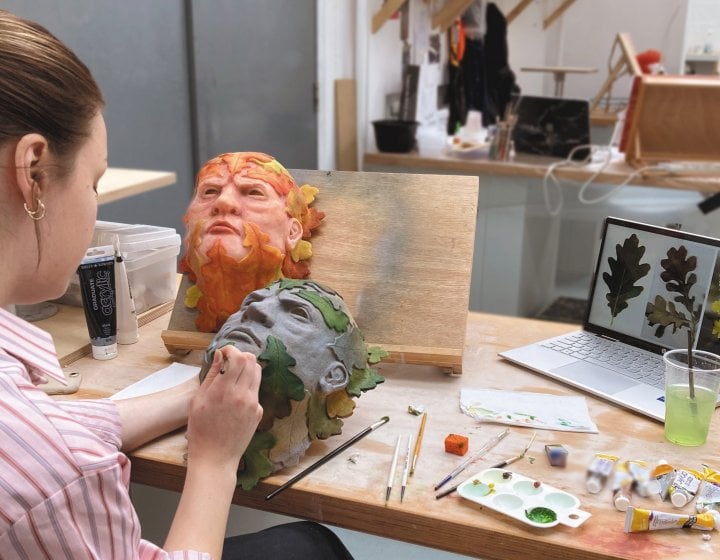
Prosthetic Effects MA
Launch your career in prosthetic effects with this unique course. Working hand-in-hand with world-cl...

Comedy Writing MA (Online)
Get the skills, tools and industry insights to push your projects to the top of the commissioning ed...
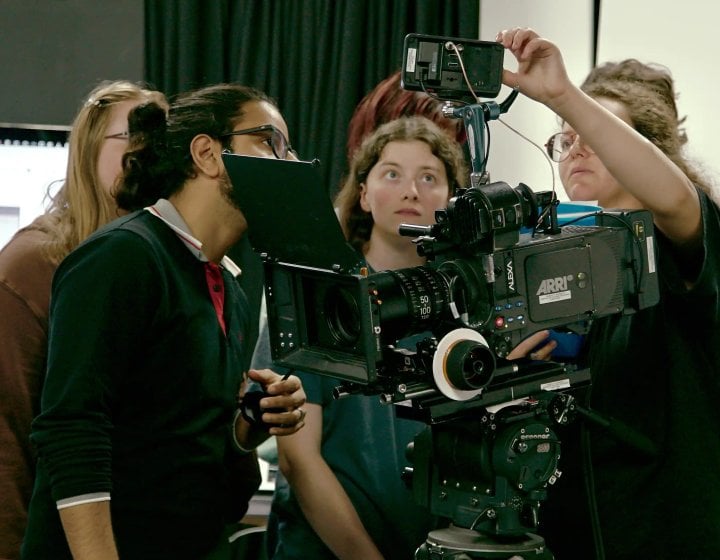
Film & Television MA
Based in our world-class film school and supported by specialist, award-winning staff, you’ll hone...